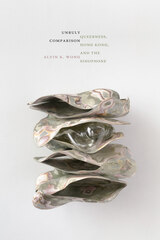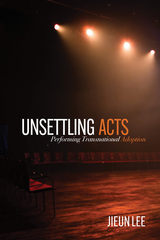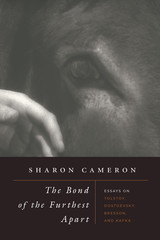
Whether exploring Bresson’s efforts to reassess the limits of human reason and will, Dostoevsky’s subversions of Christian conventions, Tolstoy’s incompatible beliefs about death, or Kafka’s focus on creatures neither human nor animal, Cameron illuminates how the repeated juxtaposition of disparate, even antithetical, phenomena carves out new approaches to defining the essence of being, one where the very nature of fixed categories is brought into question. An innovative look at a classic French auteur and three giants of European literature, The Bond of the Furthest Apart will interest scholars of literature, film, ethics, aesthetics, and anyone drawn to an experimental venture in critical thought.

Borges and Kafka, Bolaño and Bloom is a parsing not simply of these authors' reactions to a canon, but of the notion of canon writ large and the inequities and erasures therein. It concludes with a look at the testimonial and autobiographical writings of Rigoberta Menchú and Lurgio Gavilán, who arguably represent the trajectory of Indigenous testimonial and autobiographical writing during the last forty years, noting how their texts represent alternative ways of relating to national and, on occasion, Western cultures. This study is a new attempt to map writers' diverse ways of thinking about locality and universality from within and without what is known as the canon.

In Kafka's writing, Albert Camus tells us, we travel "to the limits of human thought." And in this book, the world's leading Kafka authority conducts us to the deepest reaches of Kafka's own troubled psyche, to reveal the inner workings of the man who gave his name to a central facet of modern experience, the Kafkaesque. Klaus Wagenbach, who wrote the first major critical biography of Kafka, draws upon a wealth of new and recent information to produce a concise but finely nuanced portrait of the author, an ideal introduction to this quintessential figure of modernity.
With extensive reference to Kafka's extraordinary letters and diaries, Wagenbach shows us the author of Metamorphosis and The Trial perpetually caught between the irresistible attractions of the world and his ruthless desire for solitude and isolation. It was this tension, Wagenbach tells us, that gave Kafka's writing its uncanny quality and that haunted his intense, unresolved relationships with women. And it was in this tension that both his misery and mastery inhered, making his one of the most painfully powerful voices of the experience of the twentieth century.
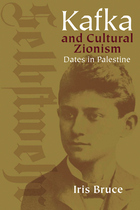
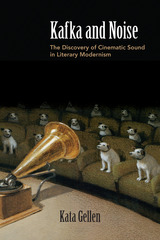
Kafka and Noise offers a method for pursuing intermedial research in the humanities—namely, via the productive "misapplication" of theoretical tools, which exposes the contours, conditions, and expressive possibilities of the media in question. This book will be of interest to scholars of modernism, literature, cinema, and sound, as well as to anyone wishing to explore how artistic and technological media shape our experience of the world and the possibilities for representing it.
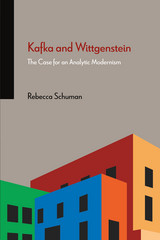
In Kafka and Wittgenstein, Rebecca Schuman undertakes the first ever book-length scholarly examination of Ludwig Wittgenstein’s philosophy of language alongside Franz Kafka’s prose fiction. In groundbreaking readings, she argues that although many readers of Kafka are searching for what his texts mean, in this search we are sorely mistaken. Instead, the problems and illusions we portend to uncover, the im-portant questions we attempt to answer—Is Josef K. guilty? If so, of what? What does Gregor Samsa’s transformed body mean? Is Land-Surveyor K. a real land surveyor?— themselves presuppose a bigger delusion: that such questions can be asked in the first place. Drawing deeply on the entire range of Wittgenstein’s writings, Schuman can-nily sheds new light on the enigmatic Kafka.
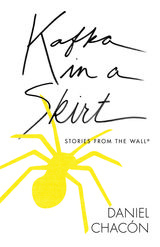
Set in El Paso and other Latinx-dominant urban spaces, Kafka in a Skirt is an immersive look into the myriad lives of the characters who inhabit these culturally diverse areas. Chacón masterfully weaves elements of the surreal and fantastic through a shining tapestry of fiction, creating moments of touching realism in contrast with scenes that are fascinatingly unfamiliar. Occasionally teasing the ghosts of Jorge Luis Borges and the Argentine poet Alejandra Pizarnik, this collection disregards boundaries and transports readers into a world merely parallel to our own. Kafka in a Skirt unravels the intricacies of culture, sexuality, love, and loneliness in a collection that shows the personal implications of barriers while remaining hopeful and bright.
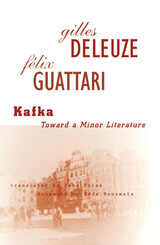
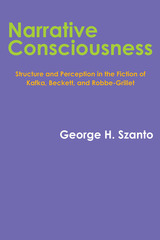
Comparatively little critical attention has been devoted to narrative technique in modern fiction, and formal analysis of the work of Kafka, Beckett, and Robbe-Grillet in particular has for the most part been limited to short studies in journals, many of these in languages other than English. The criticism written in English has dealt primarily with theme with metaphysics and myth and ignored structure and style.
Yet it is structure and style that offer the reader a way into the often bewildering and disturbing fictional worlds these three writers present. The problem confronting writers since the middle of the nineteenth century has been how to cope artistically with an increasingly alienating and mechanized world. As George Szanto sees it, Kafka, Beckett and Robbe-Grillet conclude, by the example of their fictions, that the writer's province is no longer this impossible environment. Instead, the writer must work within the only knowledge available to any one person: the knowledge attained through perceptions. The proper study for a storyteller is thus the search for the unique details, the describable perceptions a person chooses from the outside world and brings into their mind, which in the end define their nature. The shape of the story is determined by the narrating consciousness, that single character through whose awareness the details are filtered. Thus, in a very special sense, the tale and the telling are one.
Szanto's meticulous and thoughtful study of the major fiction of Kafka, Beckett, and Robbe-Grillet searches out these details and examines the manner in which each author, through the minds of his characters, has selected and ordered them. His structural approach not only leads the reader directly into the works under scrutiny, but also provides an understanding of the workings of the art itself.
In the appendices, the author surveys the different ways in which criticism has treated these three writers. His extensive bibliography provides a valuable research tool.

In four elegant chapters, Robert Alter explains the prismlike radiance created by the association of three modern masters: Franz Kafka, Walter Benjamin, and Gershom Scholem. The volume pinpoints the intersections of these divergent witnesses to the modern condition of doubt, the no-man’s-land between traditional religion and modern secular culture.
Scholem, the devoted Zionist and master historian of Jewish mysticism, and Benjamin, the Marxist cultural critic, dedicated much of their thought and correspondence to Kafka, the explorer in fiction of radical alienation. Kafka’s sense of spiritual complexities was an inspiration to both thinkers in their resistance to the murderous simplification of totalitarian ideology. In Necessary Angels, Alter uncovers a moment when the future of modernism is revealed in its preoccupation with the past. The angel of the title is first Kafka’s: on June 25, 1914, the writer recorded in his diary a dream vision of an angel that turned into the painted wooden figurehead of a ship. In 1940, at the end of his life, Walter Benjamin devoted the ninth of his Theses on the Philosophy of History to a meditation on an angel by the artist Paul Klee, first quoting a poem he had written on that painting. In Benjamin’s vision, the figure from Klee becomes an angel of history, sucked into the future by the storm of progress, his face looking back to Eden. Benjamin bequeathed the Klee oil painting to Scholem; it hung in the living room of Scholem’s home on Abarbanel Street in Jerusalem until 1989, when his widow placed it in the Israel Museum.
Alter’s focus on the epiphanic force of memory on these three great modernists shows with sometimes startling, sometimes prophetic clarity that a complete break with tradition is not essential to modernism. Necessary Angels itself continues the necessary discovery of the future in the past.

READERS
Browse our collection.
PUBLISHERS
See BiblioVault's publisher services.
STUDENT SERVICES
Files for college accessibility offices.
UChicago Accessibility Resources
home | accessibility | search | about | contact us
BiblioVault ® 2001 - 2025
The University of Chicago Press





